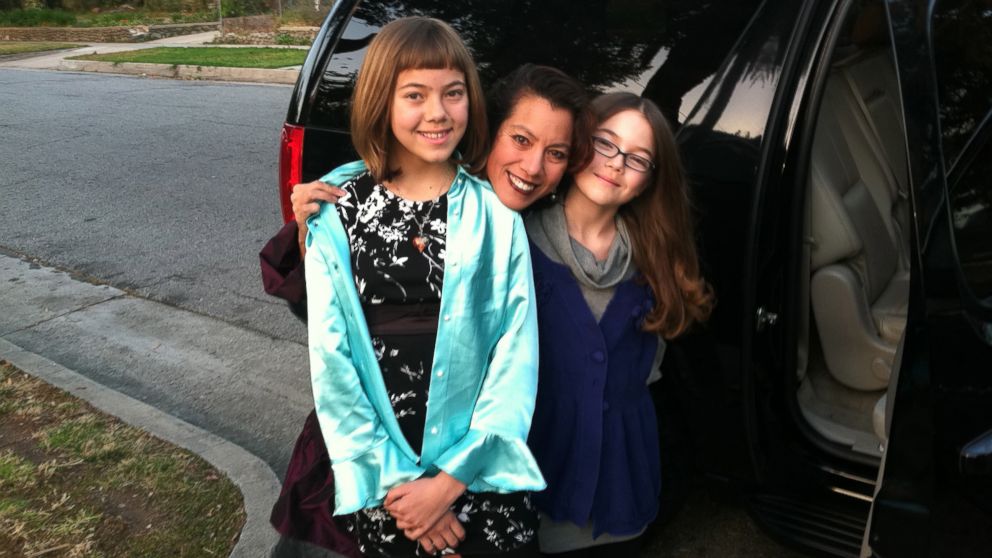Menopause Madwoman: Affair at Burning Man, Divorce
Half of American women will be have reached menopause by 2015.

May 9, 2015— -- At 49, Sandra Tsing Loh’s life exploded: She scurried off with eight women to the decadent Burning Man festival and fell into bed with her business partner, “Mr. Y,” divorced her husband and became a crazy person.
All this, she writes in a new memoir, “The Madwoman in the Volvo: My Year of Raging Hormones,” because she had entered menopause.
Her aging car, riddled with banana peels, ants and even unidentified male teen underwear (though she only has daughters), is like her, a wreck. But somehow, it still works.
“I can relate to the Cymbalta commercials,” Loh told ABC News. “The woman is staring out the window blinking because the light is too bright. She looks like she could put a gun to her head in a tedious walk through the park. She can’t get out of bed and enjoy, ‘the simple daily pleasures.’”
An estimated 48 million women are in the menopausal age bracket – 45 to 60. And by 2015, half of the female population in the United States will have reached menopause, according to research by Dr. Christiane Northrup, a leading authority in the field of women’s health.
“It’s a huge moment in history,” said Loh, who lives in Los Angeles. “Half the women running around won’t be fertile. I’d love to write about it but I am too tired, angry, sweaty, bloated and depressed. And I can’t remember anything.”
Learn more about about menopause.
Loh, a half-German, half-Chinese physics major turned writer and performer, uses her comedic voice to give women reassurance that they can laugh their way through this hormonal nightmare.
The frightening thing, she says, is that because women now live longer, menopause and the lead up to it, perimenopause, could add up to one-third of their lives. And it can start as early as 30 and last from four to 15 years.
Loh's book, originally a 2011 essay in Atlantic Monthly, “The Bitch Is Back,” will also be transformed into an interactive stand-up routine at Joe’s Pub in New York City on May 19. Women who attend will be asked to fill out questionnaires on their symptoms.
When Loh first noticed her own symptoms, she couldn’t sleep and had “sharp mood swings to the degree I had never experienced.”
All this while coping with the end of her marriage, raising two small girls and caring for her now 93-year-old father, a Chinese immigrant who married three mail-order brides after the death of her mother.
“He terrorizes LA,” she said. “He is ready for sex, wants Viagra and I feel like hitting him over the head with a frying pan.”
Loh is part of a group she calls “Generation Triple M (middle-aged women in menopause), who are juggling jobs, children and care-giving. They had put their careers first, marrying and having children later.
In 1900 the average life expectancy of an American woman was 48, according to Loh, and now they live to almost 90.
“Women in tribes used to go in a cave and live alone, but women my age are parenting teens and tweens and taking care of our parents,” she said. “We have more on our plates than ever in history.”
Plus, she says, more is expected: “Today the average full-time working mother is supposed to spend more time with the kids and not let them ride their bikes all over the neighborhood ignoring them.”
Previous generations would have “hurled something and went to bed for days and years,” she said. “We’re supposed to juggle commute, work, do email and make home-cooked meals with locally sourced organic food.”
She says the work load “would kill anybody.”
“Personally, I was hoping just to take a pill and feel better,” said Loh.
Fearing aging and getting fat, she read up on menopause only to find that doctors offer medical advice that is unhelpful.
“Their advice is always the same,” she said. “Cut out alcohol, sugar and caffeine, go on walks, do yoga and eat a lot of kale.”
One evolutionary theory of what used to be called “the change" by researcher and author Northrup, is that when a girl’s estrogen kicks in and she becomes fertile, brain’s memory is repressed – the part that allows “anger and holding grudges," according to Loh.
“It’s better for the species if she mellows out and just focuses on the kids,” she said.
But when the damper is lifted in menopause, “it’s all reactivated,’ she said. “That’s when the woman hurls a roast after being in a trance for years serving food to her family. There is the sense of injustice and anger.”




